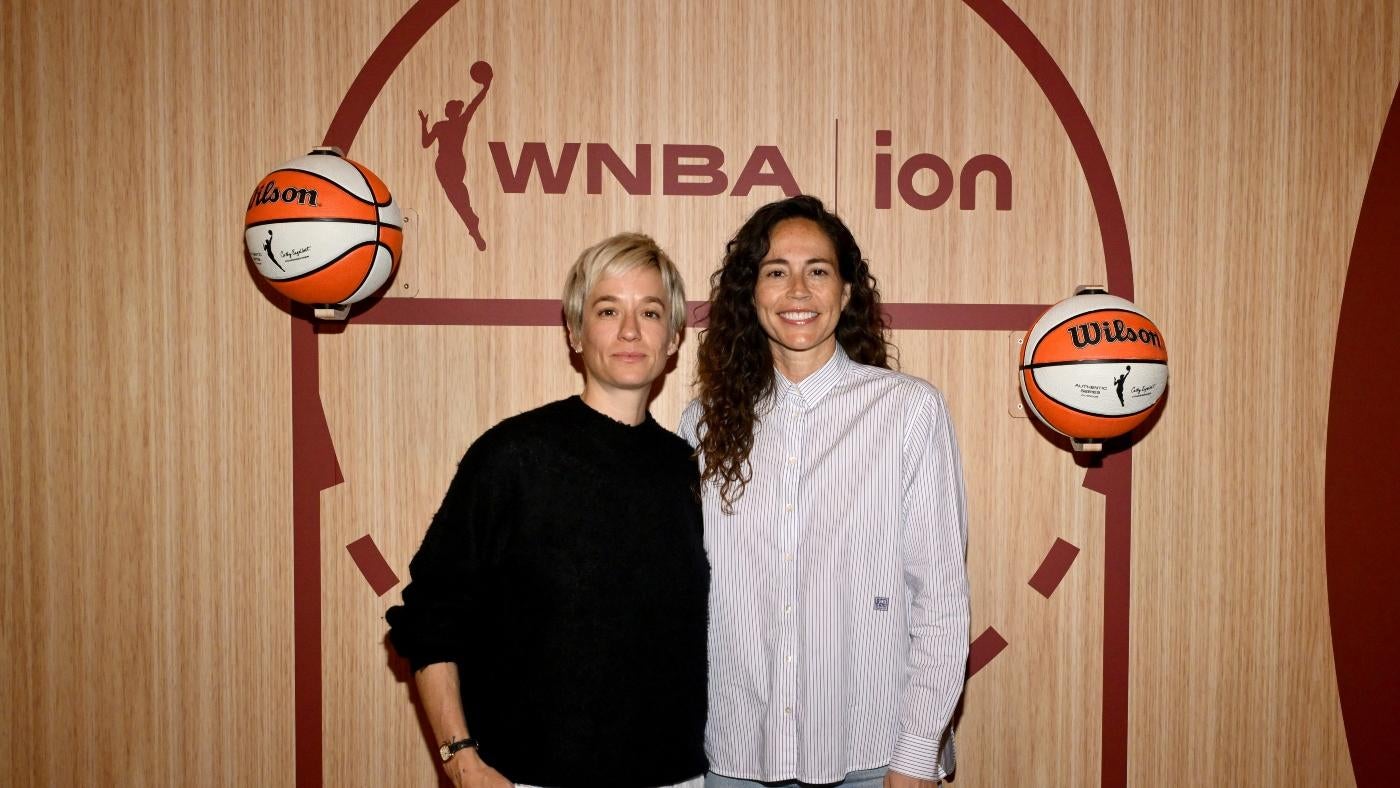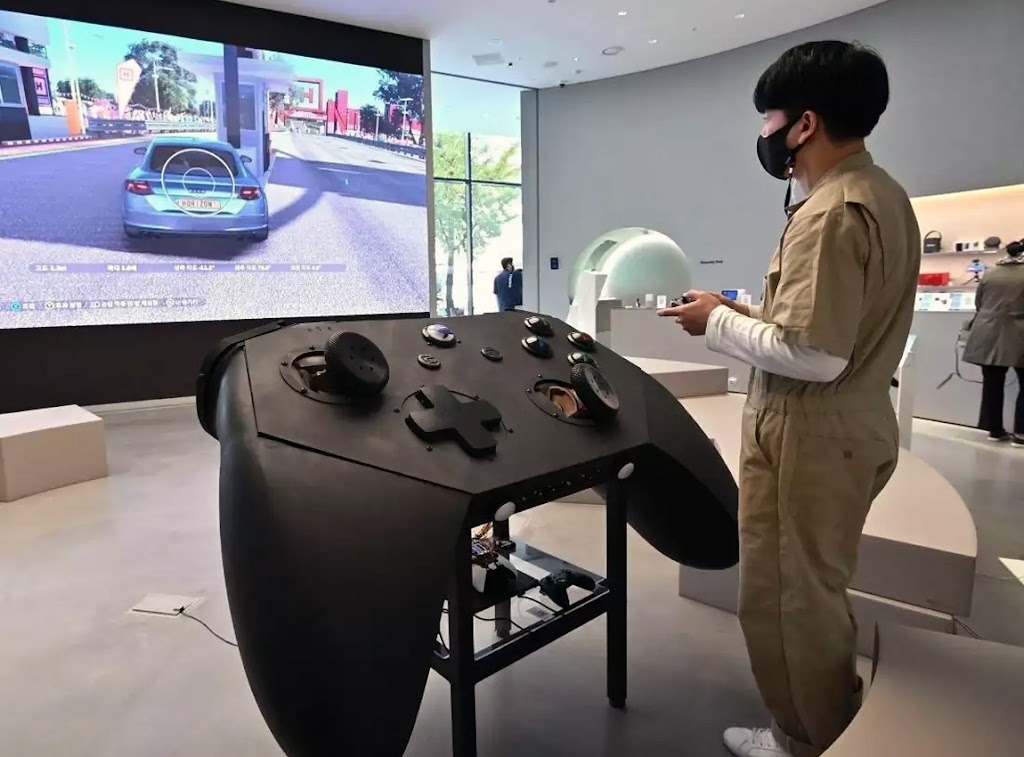
Retired soccer and basketball stars Megan Rapinoe and Sue Fowl advised a new presence of female athletes to take center stage in a “whole new era of women’s sports,” and their hopes are that increased funding and attention will allow more Younger players gather in a legacy left by those who came before them.
Since Fowl’s escape from basketball in 2022 and Rapinoe’s escape from soccer in 2023, the pair have watched from the sidelines as their respective sports undergo rapid evolutions amid the predominant expansion of women’s sports. That includes the leagues and teams they long represented: Both the U.S. basketball and women’s soccer teams won gold in Paris over the summer, when the WNBA also goes from strength to strength during a record-breaking viewership season .
Rapinoe noted that the shrinking wave of female athletes has seized the opportunity, especially on the U.S. women’s national soccer team. She was a key member of the group that won back-to-back Women’s International Cups in 2015 and 2019, but a setback in the 2023 tournament marked the beginning of a new showcase of talent. Rapinoe said she loved watching the wave team, led by new head mentor Emma Hayes, and forming the team on her own.
“We went through this in our generation,” Rapinoe told CBS Sports at ION’s Fan ConnectION activation in New York this moment. “Used players more or less have to leave before new ones can step in, specifically our present. It was so big, loud and dynamic in so many other ways and we were so national for a while. There are a number of different reasons: the successful salary , but also the equivalent, and we actually ushered in a new past for us and now they’re doing exactly the same thing and it was great to see them totally come into their own.
“They’re doing all this in their 20s, from [Sophia Smith] and [Trinity Rodman] and noemi [Girma] “And for so many other players to be able to take the reins of the team at such a young age is great and then they will do with it what they do with it.”
Fowl has noticed a change in attitudes among the reduced wave of female athletes and their attendees, who drove to the improved girls’ sports park that remains in order.
“It’s been really interesting, even talking to some of the younger players and hearing what their lives are like and how they think about their business. I really wasn’t thinking about my business or my brand,” Fowl said. “They’re a lot more conscious. They care a lot more about entertainment. I think they understand that part. They lean into that part. They’re very smart in that way.”
Promote girls’ sports activities
Rapinoe and Fowl are members of a number of female athletes who have made major advancements at work in their respective sports, including improved salaries and benefits for players in the NWSL, USWNT and WNBA. However, both believe that today’s team of female athletes will not only have to practice their steps to solve the problems they still face, but will be worth the wave’s future momentum on their merit.
“I think it’s mostly about continuing to work out a collective bargaining agreement that gives them their fair share of the business,” Rapinoe said. “US Soccer is a nonprofit, but it’s a business and they should run it like that. The team needs to be run like a business and it’s a really unique business. I mean that literally: it’s basically a traveling circus. You have the best talent, you play against the best teams, you have historic world tournaments every third and fourth year, you have an incredible league… It’s a really exciting time and to continue to keep that energy in the league – to grow the league, the attendance and the business related to that. , salaries, all that.
“I think their battle is different than ours, but they’re on a much better playing field to actually get a good offer and not just fight for the right to get an offer. I think that’s what it once was.” the same salary: Let’s all just go to the same website and the same infrastructure here, and now it’s about running alongside the federation, with the NWSL to form the most productive league, hopefully, on the planet.”
As for WNBA women’s basketball players, who recently opted out of their CBA in a historic season, Fowl noted they have their own demanding conditions. He pointed to the long offseason, which has become a particular phase of attention after Brittney Griner was wrongfully detained in Russia, where she liked to stay home and collect a paycheck during the winters. Week Fowl noted that players are staying home more often these days, and said there is room for growth as active women’s basketball players try to optimize the status and salaries of coaches.
“Assuming the money increases in salaries… players will travel less abroad and I think that’s really important,” Fowl said. “When I talk to younger players, I tell them, ‘Make sure you surround yourself with people, especially coaches, development, whatever, so you can continue to improve,’ because the most important part is that you’re a basketball player, it’s that you are a football player. Keep the main thing as the main thing.
New roles for Rapinoe and Fowl
A redeveloped women’s sports park not only offers new opportunities for wave athletes: Rapinoe and Fowl have remained active in the industry across numerous roles. Week Fowl has minority stakes in the WNBA’s Seattle Hurricane, where she played for twenty years, and the NWSL’s NJ/NY Gotham FC. The couple is in their prime vision age recording “A Touch More,” their weekly podcast.
Rapinoe joked that the couple started the project because “they love to talk, basically.” [and] We know what people need,” though Fowl said the podcast is a “natural progression” and then informally debuted the company on Instagram. They’re living in 2020. “A Touch More, according to the couple, fills some gaps in a structure of sports media that has long excluded men’s sports.
“I think a lot of it, and we clearly saw it in the W[NBA] “In this case, it’s just that there aren’t a lot of women talking about women’s sports,” Rapinoe said. “There haven’t been many players and when it is, it’s always in a [male-centric] platform, whether it’s Monica McNutt or not, Stephen A. Smith or, in fact, anywhere… Sue always says this: we are professionals in women’s sports and in our specific sports even more so, and to have the context and the nuances of those narratives is, indeed, remarkable. “Otherwise, there’s a community that says crazy things because that’s just what’s happening on the Internet.”
Fowl believes media companies like his offer a course correction that has sometimes been much needed during decades of derogatory protection.
“I’ll be honest, you kind of need the bad, hot take, but then you need us to balance the bad, hot take, and that’s part of the ecosystem,” Fowl said. “What’s always been missing is that balance. We’ve had a lot of bad, hot takes over the last 20 years and that’s really diminished our brand. I always use [“Saturday Evening Are living”] – we’ve been the butt of the SNL joke over and over again and I think people digest it, you know? You go out into the world and people just glanced at the WNBA, but there are more and more people talking about what’s really going on. That is changing. “We’re basically doing our part.”









































.jpg?width=1200&height=630&fit=crop&enable=upscale&auto=webp&w=218&resize=218,150&ssl=1)









